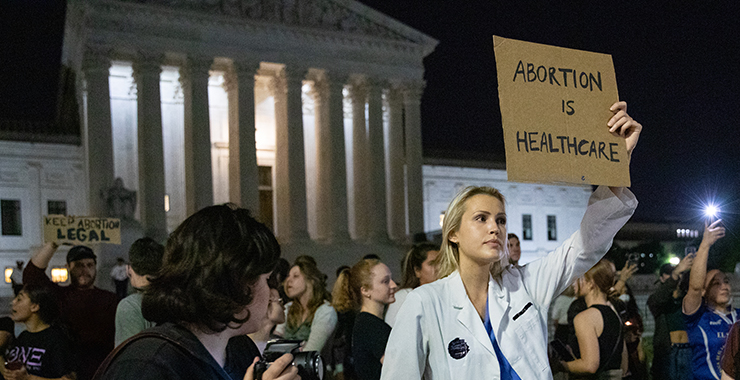LISTEN TO THIS ARTICLE:
This war on abortion will be no more successful than the war on drugs. It will only cause harm, both physically and mentally. Just as making drugs illegal did not erase them from our society, banning abortions will not stop people from getting them. It just makes them more dangerous, and it criminalizes the most vulnerable people. The American Psychiatric Association has always supported access to abortion. It is a fundamental part of healthcare, including mental healthcare. Let’s go over some myths and facts regarding mental health and abortion.
Myth #1: Abortion has a long term negative impact on women’s mental health.
Fact #1: RESTRICTING abortion has a long term negative impact on women’s mental health. Being denied abortion access increases anxiety and depression and decreases feeling of independence and self-esteem. These effects fall heaviest on minorities, the poor, and those living in rural areas or those with few medical resources.
Myth #2: Women regret having abortions.
Fact #2: Long term studies show that over 99% of women who get abortions still feel that it was the right choice for them even 5 years later. In fact, the greatest source of angst around getting an abortion comes from living in a community with stigma and shame around abortion. Women living in these judgmental spaces feel isolated and sad, but they do not regret their decisions.
Myth #3: Mandatory waiting periods for abortions help women.
Fact #3: Mandatory waiting periods force women to wait several days between their initial doctor’s visit and the one when they finally get the abortion. These waiting periods exist in 27 states. They force women to make two appointments, adding extra stress, cost, and lost wages on top of everything else. They have no medical benefit and actually add risk by increasing the gestational age when the abortion happens.
Myth #4: Banning abortion affects everyone equally.
Fact #4: Banning abortion takes power away from people who are already powerless and negatively affects their mental health. This is especially true for survivors of rape and women caught in abusive relationships. These women are the most common group who have unwanted pregnancies and who are searching for an abortion. This is when things get dangerous. Backed into a corner with few options, people take whatever they can get. That can mean unreliable abortion providers, unsanitary procedures, and unverified medications. All of this makes abortion more dangerous and puts womens’ lives at risk.

 Learn
Learn Read Stories
Read Stories Get News
Get News Find Help
Find Help
 Share
Share
 Share
Share
 Share
Share
 Share
Share



